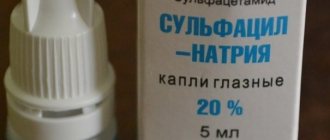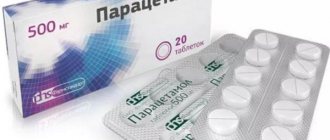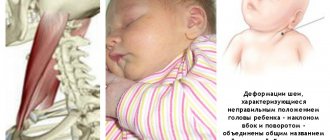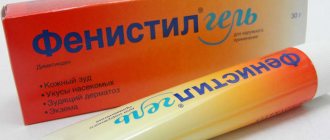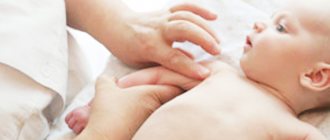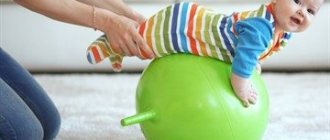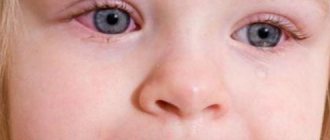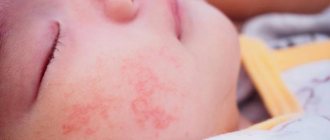Sedatives for babies
The birth of a baby is always the most anticipated event in a young family.
From the first days of his life, the baby is surrounded by the affection and care of his mother. When a child is in a good mood, communication with the baby brings extremely positive emotions. But it is not uncommon for days when something bothers the baby and he is constantly capricious. There are quite a few reasons explaining this behavior of a child. For example, the baby is in pain and is worried about real physical pain, or the baby is experiencing some kind of discomfort. It is possible that the baby has neurological problems. In any case, before using a medicinal sedative for infants, the child must be shown to a pediatrician.
Sometimes the baby is capricious because he is hungry or is haunted by diaper rash. It is also worth considering that a baby has its own biorhythm, which differs from the usual: a child may by nature turn out to be a bright “owl” or “lark”. To eliminate this problem of baby anxiety, you need to carefully monitor him. This will help you figure out the baby’s natural routine and making small adjustments to the child’s daily routine will help solve all problems with whims.
Calming a newborn quickly according to Komarovsky’s recommendations
During the first days of life, it is common for a baby to be capricious and cry. In this way he expresses his concern to his parents. But often this phenomenon causes anxiety and parents do not know how to calm their newborn baby.
At first glance, this is simple to do, because it is enough to find out the cause of the whims and try to eliminate it. Babies cry mainly due to hunger, intestinal colic, pain and lack of attention.
Each irritating factor has its own methods of calming, which we will discuss in this article.
How to calm a newborn baby when he cries? Advice from E. Komarovsky
First, try to guess the reason for the child’s whims. After a month, parents independently begin to understand what exactly the baby wants, since the child’s character has been more or less studied. Let's take an interest in what the famous pediatrician Evgeny Komarovsky recommends for each individual case.
- If a child is hungry, he must be fed. When a child is breastfed, he can be offered the breast instantly, which cannot be said about artificial nutrition. Therefore, Komarovsky advises that infant formula be prepared before the baby begins to act up. In this situation, there is no other way to quickly calm a newborn baby.
- It is not uncommon for a baby to wet their diapers or nappies. The feeling of moisture brings discomfort to the baby. Therefore, the most correct advice is to replace wet clothes with dry ones. It is important to ensure that the baby does not freeze. If the room is warm, give your child an air bath between changing clothes. 10-15 minutes are enough for this.
- The baby's movements are constrained, while he is uncomfortable and scared, then the child begins to sound the alarm by crying and whims. Carefully inspect the newborn's clothes; perhaps something is pressing on him. If you practice swaddling, wrap your baby in a new way and do it more loosely.
- The baby wants to sleep. Babies in the newborn period cannot fall asleep on their own, so they get nervous and sometimes cry hysterically. In this case, the question arises of how to calm a newborn baby before bed. E. Komarovsky advises taking the baby in your arms, singing a lullaby, and talking calmly. The ideal thing is to offer the breast and then the baby will fall asleep peacefully.
- If a child suffers from intestinal colic or cramps in the tummy, there are special pain relievers for this. These include Espumisan, Riabal, Bobotik, Infacol. When choosing medications, you need to rely on the recommendations of your pediatrician, since not all medications are equally suitable for infants.
Attention! There are other reasons that worry the baby. Most often these are feelings of pain and discomfort; if the child cries hysterically and attempts to calm them down are not effective, contact your pediatrician.
We recommend watching a video on how to calm a newborn when he cries.
Hysteria in a baby: the main reasons
Often the cause of hysterical crying in a newborn baby is simple anxiety when the mother is not around. If you believe ancient sayings, people believed that a child’s severe hysteria meant that he had been jinxed. Against such phenomena, conspiracies were used, reading prayers, and washing the baby with holy water.
Children say! By the age of three, Verochka realized that the world was divided into female and male halves, and began to pester me with the question: “Mom, are you even a girl?”
When a baby is often hysterical, perhaps something serious is bothering him; unfortunately, such crying becomes the first symptom of a pathology of the gastrointestinal tract or circulatory system, which was not detected at birth. It is completely useless to calm the child in such situations by feeding, changing clothes and rocking.
Important! If you observe such symptoms, be sure to show your child to the doctor.
We calm and put the child to sleep in a short time
There are many options for how you can calm a newborn and help him fall asleep quickly, but each method works individually:
- try singing a lullaby to your child, despite the fact that this is the technique of our grandmothers, nevertheless it is quite effective. Don’t despair if your newborn’s song doesn’t suit you, you may have to choose a special melody for him;
- brisk walking or vibrating movements calm even the most restless babies;
- motion sickness is considered the most accessible method. You can rock your baby in your arms, in a cradle, or in a stroller;
- don't know how to calm a newborn? If all else fails, try giving Nurofen. This drug effectively relieves attacks of pain and lowers body temperature. Indicated for children from three months.
For parents! Experienced mothers have proven that there is an effective way to calm a newborn in 2-5 minutes. Active movements of parents during motion sickness successfully help in this matter.
Harvey Karp Method: 5 Basic Steps
A unique way to calm a newborn baby was invented by the American doctor Harvey Karp. This technique consists of 5 main steps, taking into account which you will be able to quickly calm a crying baby.
Children say! The little one (5 years old) found my old doll and asked: “Did she have tick-borne encephalitis?”
To implement this technique, you will need to create an atmosphere similar to that of the child before birth. Here are a few steps to take to quickly calm your newborn:
- tight swaddling - this is done first. Keep in mind that the baby should not move his arms;
- place the baby on its tummy or side in your arms;
- hissing and making noise. To do this, you can turn on the radio with a broken wave. The characteristic hissing is reminiscent of the sounds that the baby heard while in the womb;
- Rock your baby with calm movements reminiscent of waves. As a rule, the child feels calmer this way;
- The sucking reflex perfectly calms the baby. Offer your baby the breast or hand a pacifier.
Such tips will incredibly quickly help rid your newborn of hysterics and screams in a short time.
Watch a video clip from Harvey Karp about the rules of calming infants
Source: https://dearmummy.ru/kak-uspokoit-novorozhdennogo-rebenka-za-5-minut-bystrye-i-effektivnye-metodiki.html
Natural sedatives
Medicines can be used as sedatives. But first, it’s wiser to try the available methods from grandma’s chest. For example, you can put herbs that calm the nervous system next to your baby’s crib. These include mint, lemon balm and lavender. Sometimes they are even sewn into a pillow, since in this form they give a much greater effect. But it is worth considering that they can provoke a severe allergic reaction in the baby.
The use of drugs based on herbal remedies is also allowed. Most often, they do not produce side effects and exhibit a mild calming effect. Such remedies help relieve irritability caused by an attack of intestinal colic, or a reaction provoked by a change in weather.
Monotonous sounds have a good calming effect, as they remind the child of a heartbeat. The baby lived under his accompaniment for nine whole months, and therefore, hearing something similar, he will feel safe.
Here you can use special sounds - “white noise” - similar to the murmur of water, the sound of raindrops on glass or the surf of the sea. Almost all babies like this type of noise, and therefore they sleep soundly and completely peacefully.
If you can’t rock your baby to sleep this way, he will certainly fall asleep in his mother’s arms.
White noise for a restful sleep
Any baby is soothed by monotonous sounds similar to the beating of a mother’s heart. Therefore, a sedative for infants at night can be chosen according to this principle. The so-called “white noise” is an excellent alternative to sedatives. Special sounds for a child's sleep are reminiscent of the murmur of water, the sound of rain or sea waves. Children really like this kind of musical accompaniment. They fall asleep calmly and sleep more soundly.
Classical music also has a good effect. Parents should accustom their baby to beauty even before birth. Scientists have long proven that babies hear perfectly in the womb. If you always play the same slow melody for your baby, it can replace a sedative for infants. Children almost always calm down when they hear a familiar sound.
Potions with a calming effect
Too much anxiety in a child may be a reason to visit a neurologist. Quite often in such cases, the sedative drug “Mixture with Citral” is prescribed. Sometimes pediatricians also prescribe the drug for use by infants.
The peculiarity of the drug is that it can be used from birth. The medicine has a mild calming effect and also helps relieve intracranial pressure. Additionally, the product has antimicrobial, analgesic and anti-inflammatory properties. The main component of the mixture was the substance citral. This component is found in lemon pulp, as well as eucalyptus and lemon balm.
Another commonly prescribed drug is Magnesia (aka sodium sulfate). The medicine has calming properties and also relieves intracranial pressure. Among the side effects of taking the drug, there is a laxative effect, but it does not always appear.
Soothing teas for babies
These teas are based on medicinal plants that have a calming effect. Pharmacies offer a fairly large selection of products. Soothing tea calms the child's nervous system well, which allows the baby to sleep peacefully throughout the night.
If the baby is breastfed, then the baby’s mother can drink this tea. In this case, the baby will receive sedatives in already processed form along with milk. The effect will be obtained in any case.
Before you start using soothing tea, your baby should be shown to a pediatrician and get professional advice from a doctor. It is also worth remembering that some herbs can cause an allergic response. And if, after drinking the soothing tea, a child develops skin rashes, redness, a runny nose, or has a coughing attack, then this product should be abandoned.
Sedative for infants Komarovsky
Published on: 03/24/2019 adminComment: 0
Children of absolutely any age can sometimes be too capricious, restless, irritable and suffer from sleep disturbances.
For a child’s nervous system, various stressful situations can be very dangerous. In some cases, doctors even advise resorting to sedatives.
Many of these medications do not pose a threat to the child’s body and help solve such a serious problem.
Safe sedatives for newborns
It happens that even infants require sedation.
But most parents are afraid of harming their baby, and therefore refuse to use any medications.
However, if you do not pay attention to the problem, it will not disappear on its own. This is fraught with sleepless nights, constant crying, loss of appetite, which entail a number of other consequences.
There are several sedatives suitable for newborns:
- Pharmaceutical drugs . For children under one year old, special products have been developed that do not have strong side effects. Among them, the most effective are: Glycine, Citral, Valerian, Phenibut and Pantogam. These drugs can only be used as prescribed by a doctor who knows the exact cause of the baby’s nervousness. Self-medication is completely excluded, because the wrong medicine can cause undesirable consequences.
- Tea . There are a number of soothing herbal remedies that can be used to relieve anxiety in newborns. Tea effectively normalizes the state of the baby’s nervous system and improves sleep. Moreover, such preparations contain only useful plants that have a positive effect on children's immunity. Before purchasing tea, you should study the composition and effect of each component on the body. It is better to brew the drink an hour before bedtime and give it to the child in small quantities. It is important to mention that some herbs can cause allergic reactions, and you should stop using such products at the first sign of them.
- Baths . For newborns, soothing baths are the safest remedy for insomnia and nervousness. To do this, you will need to pick up several types of herbs at the pharmacy, such as valerian, lavender, thyme, motherwort or mint. Next, you should fill the baby bath with some warm water and pour three tablespoons of dry plants into it. Bathing should not last more than fifteen minutes. Immediately after the bath, you need to wrap your baby in a warm blanket and put him in his crib.
Nowadays, thanks to the above remedies, mothers no longer have to suffer from insomnia and constant crying of the child. But it is worth noting that the use of aromatic oils and alcohol tinctures for newborns is highly discouraged. These products, although they have a calming effect, are in no way designed for use on infants.
A good sedative for nervous children
When a child reaches three years of age, a number of different sedatives that were not previously available can be used. At preschool and school age, children face various stressful situations that negatively affect the functioning of the nervous system. The following remedies are considered the most effective:
- Sea salt . Baths with its use have a good calming effect on the entire body. Irritability and anxiety disappear, sleep normalizes. Moreover, salt contains iodine and other trace elements that are beneficial for health.
- Tenoten for children . An effective sedative drug that relieves anxiety and nervousness, helping the child deal with stress. It has no significant side effects or contraindications for use. Available in tablet form. Children should suck on one piece a day for two weeks, after which they need to take a break.
- Magne B6 . Suitable for children of any age and is a vitamin complex that has a restorative effect on the nervous system.
- Persen . The drug is made on the basis of various herbs. It also has a pleasant taste, which makes it much easier to take.
- Glycine . The product helps reduce fatigue, resist stress, and improves memory. Children are recommended to take one tablet three times a day for a month.
The above remedies help the child cope with difficult situations at home and at school, and fatigue.
In general, taking sedatives will not harm the child’s body if it is agreed with the doctor and is appropriate. On the contrary, often such drugs help strengthen the children's nervous system and immunity. However, parents should be careful when choosing medications and strictly follow the instructions to avoid overdose and allergies.
Source: https://detki.shukshin-net.ru/uspokoitelnoe-dlja-grudnichkov-komarovskij/
Herbal baths
Bathing your child in the evening in a bath with herbs is another quite effective sedative. Coniferous aromas, as well as mint, chamomile and valerian, have proven themselves well in this regard.
To get the desired result, you need to bathe your baby in such baths every evening. This should be done after the evening feeding, shortly before the time when the child falls asleep.
The water in the bath should not be hot - 37 °C is enough. If the baby's umbilical wound has not yet healed, then only boiled water should be used for bathing.
The necessary herbs can be easily purchased at any pharmacy. The main thing is to follow the brewing method and dosage recommended by the manufacturer when using it. The decoction should be prepared immediately before bathing, adding it to the water.
In some cases, evening bathing with herbs has an exciting effect on the child. And if the baby becomes active after such baths, then you need to think about another sedative procedure.
The child does not sleep well at night
A baby's crying during the day can cause parents much less anxiety than at night. What if the child wakes up every hour and does not want to drink or eat? There is no need to rush to run to a neurologist. Perhaps the baby’s daily routine is simply disrupted. Many people know that a child can confuse day with night.
The day is a great time for a child's development. When the baby is not sleeping, you need to walk a lot with him in the fresh air, talk, and show him bright objects. A special massage provides enormous benefits to the child. It promotes not only physical but also mental development. If the baby spends almost all his waking hours alone with himself, it is not surprising that he will be restless and whiny. You should not give infants a sedative for any reason. The child requires attention and care, and medications should be postponed as a last resort.
Sedatives for infants
The birth of a small child is the most important and happiest event in every family.
From the first days the baby is surrounded by attention and care. A smiling and cheerful newborn brings a lot of positive emotions, but there are days when something bothers the baby, causing him to constantly cry. There may be several reasons for this behavior: physical pain, discomfort, neurological disorders. Before giving your baby any sedatives, you need to solve the problem with the complex and be sure to show it to the doctor. The mother must make sure that the baby is not hungry and does not have heat rash or diaper rash. In infants, as in adults, there are individual biori, other “larks”. To create a favorable daily routine, this must be taken into account. In order to find out what biorhythm your baby has, choose two or three days when there is no specific routine and note the time when he wants to eat, sleep, and when he is actively awake. After correct adjustment of the daily routine, many problems will disappear on their own. As sedatives, you can use both drug treatment, but this is only as a last resort, as well as sedative procedures and folk remedies. Herbal and natural-based drugs have a mild sedative effect and have virtually no side effects. They relieve irritability, discomfort during intestinal colic, or a reaction to weather changes. You can put medicinal herbs in your baby's pillow - mint, lemon balm, lavender, but you need to take into account possible allergic reactions.
Any child is calmed by monotonous sounds. They remind him of the beating of his mother's heart. This is called "white noise". Special sounds are similar to the murmur of water, the sound of sea waves or raindrops. Babies really like this musical accompaniment. They fall asleep calmly, their sleep is sound and carefree.
Nothing can replace a mother's tender hands. Touch, affection and warmth will calm the child in any situation. Don’t forget about lullabies when rocking your baby to sleep.
Soothing drops for infants
Soothing drops for infants are homeopathic preparations. For example, Bayu-Bai drops can be used from the first days of a newborn. In addition to the calming effect, they have anti-inflammatory and strengthening properties. If you use this remedy comprehensively, it will not only restore your baby’s sleep, but also relieve excess excitability. If the doctor believes that the baby is hyperactive, then special sedative drops are prescribed.
Soothing mixture for infants
If you come to see a neurologist about a restless baby, most likely he will prescribe you a “Citral mixture.” Pediatricians also prescribe it. The drug can be used from the first days. It has a mild sedative effect and slightly reduces intracranial pressure. The main active ingredient is citral, found in lemon, lemon balm and eucalyptus. The mixture can also be used as an antimicrobial, anti-inflammatory, and analgesic.
Another proven and modern remedy is Magnesia or sodium sulfate. It calms and reduces intracranial pressure. There is a slight laxative effect, but this is not always evident.
Description of the best sedatives for children under one year old and how to give to infants
Restless constant crying of infants can poison the lives of parents.
Mothers are worried that the baby is sick, he is suffering from colic, and they are looking for ways to calm the newborn. There are many sedative methods and medications for children under one year of age that alleviate the baby’s condition and stabilize the functioning of the nervous system without harm.
They should be used after the advice of a pediatrician, having first found out why the newborn is crying.
The main causes of crying in newborns
Crying is the only way a baby gets attention and communicates with the world. Therefore, there can be many reasons for screaming. They can be divided into several groups:
- hunger is the most common and simple reason;
- inconvenience, discomfort - a dirty diaper, uncomfortable position or clothing, bright or weak light, noise, cold or overheating;
- fear;
- pain – there are many reasons: from colic to serious diseases.
Infants often cry from overwork, fatigue, and inability to relax and fall asleep. The desire to be held is associated with the memory of the warmth and comfort of intrauterine life.
Important: you need to look for sedatives for newborns after excluding dangerous causes of anxiety - serious digestive problems, central nervous system, pain caused by organic or functional lesions that require treatment.
In what cases should you consult a doctor?
If a newborn cries frequently, you should establish a daily routine, regularly change the diaper, walk with the baby, and ventilate the room. If improvement in the conditions of care does not produce results, the baby does not become calmer, you should consult a doctor. It is necessary to urgently call a pediatrician in the following cases:
- the newborn does not calm down even for a short time, cannot sleep, refuses breast milk or formula;
- fever, rash, and other signs of illness appeared;
- unnatural crying - monotonous, without emotion;
- The baby's crying is accompanied by convulsions.
A timely visit to a doctor will help to identify the causes and avoid the development of serious diseases in infants.
Safe sedatives for infants
Simple safe remedies can be used independently, as they do not cause side effects.
Warm bath
Taking a bath with soothing mixtures helps the newborn to relax and relieve increased muscle tone. Water vapor with natural relaxants additionally acts through the respiratory tract. For infants, decoctions of the following plants are added to the bath:
- lavender;
- calendula;
- chamomile;
- peony;
- valerian;
- fennel;
- thyme;
- mint;
- pine needle extract;
- motherwort.
The recommended bath time is 5-7 minutes, frequency 2-3 times a week.
Relaxing massage
Massage helps infants relax and fall asleep peacefully. The pediatrician will tell you what techniques to use for the little ones.
It is better to first watch how a professional nurse performs a massage.
Lullaby
The voice of a mother humming a quiet, gentle song calms babies better than medicine. Lullabies can be without words; it is enough for a child to simply hear his favorite voice.
Soothing music
Quiet music calms the nervous system of infants. Parents often use "white noise" - a chaotic combination of sounds of different frequencies that imitate the noises that the baby heard in the mother's womb.
Medicines
Special medications have been developed for infants in appropriate dosages. These drugs can only be prescribed by a doctor. They should be used only after advice from a specialist and in combination with other ways to calm the baby.
Special tea
For infants, herbal teas containing herbs with a sedative effect are used. For infants, you need to select herbs that are considered safe for infancy. Ready-made teas for children under one year old contain sets of phytocomponents in strict accordance with recommended safe dosages.
Children's sedative
Tea called “Calming” Hipp contains lemon balm, linden, and chamomile. Kids like it, quickly relieves anxiety, improves sleep.
Calm down
The Fitosha series offers tea bags containing lemon balm, linden, oregano, and currant leaves.
Evening Tale
A convenient way to calm a baby is Evening Tale tea bags. It contains lavender, mint, anise and fennel.
Phytosedan
A complex of soothing herbal remedies (valerian, sweet clover, oregano, thyme) is contained in the ready-made collection Phytosedan, which can be used by children up to one year old.
Chamomile
Organic Chamomile children's tea is available in dosages appropriate for infancy. Parents can brew chamomile on their own.
Oregano
Oregano calms the nervous system and helps cope with insomnia. Used separately, it is also included in multi-ingredient herbal teas for children under one year of age.
Thyme
Tea with thyme is not recommended for use by children under one year of age; it is approved for use from 3 years of age.
Series
The series is widely used in baby creams and for baths for infants. Giving the decoction in the form of tea is recommended for children from 3 years of age.
Valerian
Valerian has a mild calming effect. It is given to infants in the form of a decoction, and not drops in alcohol.
Calendula
Calendula baths can be given to infants from the first days of life. In the form of tea, calendula should not be used for children under one year of age.
Plantain
Infusions and decoctions of plantain are approved for oral use by children from 3 years of age.
Motherwort
Motherwort decoction can be added to children's drinks after one year, 1-2 teaspoons.
Booing
During the prenatal period, the fetus constantly heard the noises of the mother's body and the movement of blood through the vessels. “White noise” is a way to reproduce these sounds and calm the baby.
According to many studies, a simple hiss, which matches the tone of the murmur of blood in the veins, can calm the baby.
Many mothers are sure that pronouncing the sound “shhhh” and a calm, monotonous voice calms the baby better than all other means.
Swaddling
A lot has been said about the benefits and harms of swaddling. A baby in a warm cocoon does not make chaotic movements with its arms and legs and sleeps more peacefully. The tightness reminds of life in the womb and pacifies the baby.
There is no need to swaddle too tightly; the child should be able to slightly change the position of his arms and legs. Many parents are sure that diapers calm their babies and set them up for a long night's sleep.
Pacifier
A pacifier helps satisfy your baby's sucking urge. The baby usually calms down when he feels the pacifier in his mouth and sucks on it a little. According to some reports, a pacifier even reduces the likelihood of sudden infant death syndrome in your sleep.
Using soothing drops
Medicines for children under one year of age are used with caution and in small doses. Usually, the pediatrician refers restless children to a neurologist to identify the causes of hysterics and rule out diseases of the central nervous system. The following drugs are used at night - Glycine, Notta, Phenibut. A calming mixture with Citral can be used by infants not only before bed. Drops are given up to 3 times a day.
A sedative also includes the drug Magne B6, which replenishes the lack of magnesium in the body. Homeopathic medicines for infants are also used only on the recommendation of a doctor. These are the drugs Nervohel, Valerianahel, Dormikind, Viburkol suppositories.
List of effective remedies for children under 1 year of age
For small children under one year of age, medications are used in minimal dosages. The choice of drug is made after diagnosing the causes of anxiety and only by a doctor - a pediatrician or neurologist.
Important: All medications, including herbs, have multiple effects. Sedatives can depress the nervous system and lower blood pressure, so parents should not prescribe them to their baby themselves.
Medicine for infants
Infants are often prescribed a drug that is prepared in a pharmacy. It is called the Potion with Citral. It is difficult to prepare the composition yourself, since the components are strictly dosed. Let's take a closer look at the composition of the sedative mixture.
Citral
The main component of the mixture for infants is citral. The substance is part of many essential oils. Has a distinct lemon scent. Action provided:
- anti-inflammatory;
- antiseptic;
- soothing;
- weak analgesic;
- hypotensive – slightly reduces arterial and intracranial pressure.
Citral is available in the form of an aqueous and alcoholic solution. For the mixture, use a solution of water.
Magnesia
Magnesium sulfate or Magnesia is a well-known drug for relieving spasms and reducing blood pressure. The sedative effect helps improve sleep in children. It also has a laxative effect when taken orally.
Valerian extract
Valerian reduces the excitability of the central nervous system, reduces anxiety, makes it easier to fall asleep, and fights the symptoms of vegetative-vascular dystonia. In the mixture, instead of valerian, motherwort, which has similar properties, is sometimes used.
Sodium bromide
A sedative and anticonvulsant helps regulate the processes of inhibition and excitation in infants. Relieves muscle spasms, reduces the threshold of brain sensitivity to impulses.
Diphenhydramine
Belongs to the group of antihistamines. Diphenhydramine in the mixture is used as a sedative that relieves spasm of smooth muscles. The drug is used in medicine in small quantities.
Glucose in aqueous solution
Glucose is included to improve taste.
Distilled water
Distilled water is used to dissolve and mix all components of the mixture.
Phenibut
The drug is available only in tablets, has a nootropic effect, reduces anxiety and restlessness. It is not used for children under one year old; it is allowed to take it strictly according to indications, not earlier than 2 years, in low dosages.
Pantogam
A nootropic drug based on hopantenic acid is approved for use from the neonatal period. For babies, cherry-flavored syrup is used. The drug increases resistance to hypoxia, has a sedative effect, and reduces motor excitability. Used only as prescribed by a doctor, for a course of 1 to 4 months. It is excreted unchanged, without participating in metabolism.
Bye-bye
Drops for children based on a complex of soothing herbs containing citric and glutamic acid. Used in children with hyperexcitability syndrome and insomnia. Despite the natural composition, it is recommended to use it no earlier than 3 years.
Tea Hipp
Natural HiPP products can be used by infants from one month onwards. Teas are available in granules and bags. Chamomile and fennel tea calms babies and eliminates colic - a common cause of crying in infants. A series of products for nursing mothers is also produced.
Tips and tricks
During the transition from the mother's womb to independent life, newborns experience stress. Adaptation of the body to new conditions is not easy; often it is not possible to detect the causes of anxiety in infants - the baby constantly cries. What pediatricians and experienced mothers advise:
- Create a warm, positive environment around the baby. Do not approach the baby in an irritated state, do not quarrel with each other - the child perfectly senses the mother’s mood, gets scared and cries.
- Spend more time with your baby in the fresh air. At home, let the baby be naked and kick his legs.
- Set up care. Change diapers frequently, avoid diaper rash, and protect your skin from irritation.
- Maintain a daily routine. This calms babies, creates a feeling of stability and confidence.
Pediatricians advise using affection, good care, and holding the child when he is restless to calm babies. Most medications for children are indicated for use no earlier than one year of age.
If you take medications earlier than the manufacturers recommend, you can develop serious health problems.
A tired mother needs to be given rest, the opportunity to relax, to escape from worries. Increased anxiety in nursing mothers negatively affects infants. The child should feel the constant care and affection of both parents, then it will be easier for him to settle into the world and survive the first difficult months of independent life.
Source: https://grudnichky.ru/lekarstvo/uspokoitelnoe-dlya-detey-do-goda.html
Soothing tea for babies
The main components of soothing tea are medicinal plants. It is sold in pharmacies in a wide variety. It comes with detailed instructions with the optimal dosage. If the baby is breastfed, then this tea should be given with extreme caution, as the drink may turn out to be tastier than milk. This may be the reason for breast refusal. In this case, it is better for mom to drink soothing tea. Before giving tea to your child, consult your pediatrician, as some herbs may cause an allergic reaction or lower blood pressure.
Mom's love and affection
Nothing can replace a baby's tender mother's hands. Do not neglect children's crying. It is impossible to accustom a Rebek to your hands. No medications can give a good result if the baby does not receive affection and warmth from the mother. Of course, it is impossible to carry a child in your arms all day long. A sling can come to the rescue.
A sling is a unique device that allows you to do housework with your baby. The child, being constantly with his mother, feels calm. The woman's hands remain free. The sling can be used from birth. Being in a physiological position, the child can both sleep and stay awake next to his mother. You can carry a baby not only in a horizontal position, but also in a vertical position.
Slings today are made from high quality materials. Only natural fabrics are used. This product is not cheap. But parents are willing to pay any money for the comfort and health of the baby. In addition, the sling is much more useful than sedative drops for infants.
Soothing baths for babies
Another wonderful sedative is herbal baths. The use of pine extract gives a good effect. Valerian, mint, and chamomile have a calming effect. Water procedures should become daily. Take them before bed some time after feeding. The water temperature should be 37 °C. If your baby's belly button has not yet healed, use only boiled water. Medicinal herbs can be bought at the pharmacy. These can be disposable bags or regular packaging. To prepare, take a bag or a few tablespoons of the herb and pour a glass of boiling water. Leave for fifteen minutes. Then add to the prepared bath. Always prepare the decoction immediately before bathing.
Water treatments
Another excellent sedative for infants is herbal baths. Water procedures should be a mandatory item in the baby’s daily schedule. Why not solve several problems at once? A variety of plant extracts added to warm water have a positive effect on the baby. He quickly calms down and falls asleep easily.
Herbs such as valerian, lemon balm, lavender, chamomile, and mint have a positive effect on restless babies. They have relaxing as well as healing properties. Soothing baths for infants with a series will be useful if there is irritation on the baby’s body. Just a few procedures will be enough to make your child’s skin glow with health again.
Indications for the use of sedatives for infants
The decision to prescribe sedatives should be made by the doctor, taking into account all individual diseases and the child’s health condition. Reasons for taking sedative medications may include:
- pronounced anxiety of the baby;
- screaming and crying for no obvious reason (subject to the exclusion of pain);
- refusal to feed;
- moodiness, tearfulness;
- effects of stress;
- nervousness.
Types of sedatives for children
The choice of drug depends on the degree of its effectiveness and the risk of side effects (especially an allergic reaction), so you need to coordinate the use of the drug with your doctor. Preference is given to plant-based products.
Synthetic drugs are permissible for use only for the treatment of serious psychiatric and neurological diseases.
Calming teas for children
Sleeping pills for infants can be presented in the form of herbal preparations. It is not advisable to prepare them yourself; it is better to use ready-made preparations with optimal dosages for infants. Examples of fees:
| Name | Compound | Action | Contraindications |
| Calm down | Green tea, alfalfa, thyme, motherwort, rosehip, peppermint, lemon balm, kelp extract powder | Normalizes sleep patterns, calms the neuromuscular system | Allergy to herbs composition |
| Hipp | Linden blossom, chamomile, lemon balm | Calms, normalizes sleep, makes it easier to fall asleep | Age up to 2 weeks |
| Grandma's basket | Mint, lemon balm, thyme, fennel, rose hips, chamomile | Calms before bedtime, relieves spasms and colic | Age up to 1 month |
Medications
Sleeping pills for children under one year of age are available in the form of drops, syrups, suspensions, and tablets. They are taken before bedtime, the course lasts 1–3 months. Tenoten is not suitable for infants; it is better to use other popular drugs:
| Name | Compound | Action | Contraindications | ||
| Pantogam | Calcium hopantenate | Stimulates metabolism, reduces excitability, activates physical and mental activity, has sedative, nootropic, anticonvulsant effects | Viburkol | Belladonna, chamomile | Anesthetizes, eliminates agitation, convulsions |
| Glycine | Glycine | Has sedative, antidepressant effects | |||
| Citral | Citral | Eliminates inflammation, soothes | |||
| little hare | Barberry, hawthorn, cumin, lemon balm, motherwort, mint, chamomile, valerian | Relieves nervous excitability |
Homeopathic remedies
Sedatives for children under one year old from the homeopathic group quickly normalize the active state and make it easier to fall asleep. Babies can take the following medications:
| Name | Compound | Action | Contraindications |
| Viburkol | Chamomile, belladonna, calcium | Normalizes neuro-reflex excitability, calms, stops the inflammatory process | Age up to 6 months |
| Dormikind | Magnesium, zinc, fireweed | Improves sleep | Lactase deficiency, glucose-galactose malabsorption |
Medications
For children who are very restless, baths and teas can only have a temporary effect. In some cases it is impossible to do without medication. There are a huge number of sedatives that are suitable for children under one year old. They have virtually no contraindications, but they should still be taken with caution. You can purchase medications only on the recommendation of a doctor.
An integrated approach will give a good result. In addition to
a sedative may be used for infants. “Glycine”, “Pantogam”, “Phenibut” - this is an incomplete list of drugs that can be used to eliminate anxiety in infants. Homeopathic remedies also give good results (preparations “Notta”, “Dormikind”, “Hare”, “Viburkol”). They are harmless and gently soothe the baby. But such medications should be used only after consultation with the pediatrician.
What sleeping pills are there for children?
Sleeping pills are prescribed to children only in extreme cases when they experience serious problems with sleep. Sleeping pills for children are selected exclusively by the doctor based on the individual data of the little patient, his sleep problems and the reasons for their occurrence. This is due to the fact that taking sedative medications can be addictive and have a negative effect on the nervous system.
Treatment of hyperactivity in children with medications: drugs
Recently, children are increasingly diagnosed with hyperactivity. This is one of the types of diseases of the nervous system, which in most cases goes away on its own. However, parents should not ignore it. Various methods are used to treat hyperactivity: drug therapy, folk remedies, exercises, the influence of a psychologist, etc.
Excedrin
One of the medications used to treat hyperactivity is Excedrin. It is not prescribed to children under 15 years of age. The drug belongs to the group of psychostimulants and has many contraindications.
In addition to Excedrin, other medications are used to treat hyperactivity.
What is hyperactivity?
ADHD (hyperactivity) is a syndrome of increased mental and physical activity in which excitation predominates over inhibition. The disease is associated with disruption of the central nervous system.
Hyperactive children are too active and find it difficult to sit in one place for a long time. They are inattentive and have problems with learning and memory. The brains of children with ADHD have difficulty processing information.
Symptoms of hyperactivity in children:
- emotional instability, tearfulness;
- restlessness;
- anxiety;
- sleep problems;
- bad behavior;
- speech delay and others.
How to treat hyperactivity in children?
The best place to start fighting hyperactivity is by visiting a doctor. First of all, you need to contact a pediatrician who, after examining the child, will give a referral to the required specialists.
Treatment of ADHD should be comprehensive, including not only drug therapy, but also other methods of influence. An important place is occupied by psychological and pedagogical correction, proper nutrition.
Drugs
Treatment of hyperactivity in children with medications should be carried out under the supervision of specialists. Only a doctor can select the exact dosage and determine the duration and effectiveness of therapy.
The following groups of medications are used to treat ADHD:
- psychostimulants;
- sedatives;
- nootropics;
- norepinephrine drug.
It is also important to take vitamins.
ADHD medications can achieve the following effects:
- reduce impulsivity and reduce excitability;
- improve mental activity, which manifests itself in increased learning ability;
- improve performance;
- develop new skills;
- improve behavior;
- increase the ability to control your own emotions;
- develop fine motor skills.
Medicine for hyperactivity in children is selected depending on the prevailing symptoms.
Psychostimulants
Psychostimulants are actively used in the treatment of ADHD in children with medications:
- Ritalin is a medication that helps reduce hyperactivity and impulsivity, improve concentration and the overall quality of life of a child;
- Excedrin - the basis of the drug is psycholeptics and acetylsalicylic acid, has many contraindications (glaucoma, vitamin deficiency and others), is intended for adolescents aged 15 years and older.
The dosage of psychostimulants is determined strictly by the doctor. Otherwise, side effects may occur: dizziness, headaches, and the appearance of nervous tics.
Vitamins
Vitamin complexes must be taken along with medications for ADHD. They strengthen the child's immune system and help him fight the disease.
The following types of vitamins are relevant:
- B vitamins (thiamine chloride, B1) - a synthetic drug, soluble in water, takes part in improving brain activity and restoring the functioning of the central nervous system;
- Vitamin A is a fat-soluble substance used not only for hyperactivity, but also for other disorders of the nervous system.
Despite the apparent safety of vitamins, it is important to take them in a certain dosage. Otherwise, you may encounter hypovitaminosis, which is fraught with undesirable consequences.
Norepinephrine drug
One of the main representatives of norepinephrine drugs is Digitalis. It is rarely used to treat children under one year of age. The drug consists of herbs, so it has virtually no contraindications. It is forbidden to use it only if you are allergic to one of the components of the product.
Digitalis is a homeostatic drug that is poisonous in large dosages.
This is not the entire list of drugs that are used to treat hyperactivity in children. Neuleptil, Mexidol and even dietary supplements are often used.
Traditional methods
Along with drug treatment, folk remedies help get rid of hyperactivity in children. How exactly to use them - separately or in addition to traditional therapy - is decided by the doctor. Treatment of hyperactivity in children with folk remedies involves taking herbal infusions and decoctions orally, as well as using them in the form of baths.
Herbs
There are several recipes for preparing herbal decoctions and infusions that help alleviate the symptoms of hyperactivity in children:
- pour dried angelica rhizomes (10 g) with boiling water (0.5 l) and leave for 6 hours, wrapping the container in a warm towel or blanket, drink 1 tsp. three times a day;
- pour a few tablespoons of hop cones into 300 ml of water, put on fire and cook for about 1 minute after boiling, then leave for half an hour, drink 10 ml 3 times a day;
- prepare a decoction of St. John's wort: pour the crushed dry raw material (15 g) with a small amount of boiling water so that it covers the herb, boil for 15 minutes, and then drink chilled, 2 tsp. twice a day;
- Brew 10 g of lavender flowers in 300 ml of boiling water and leave for half an hour, take 15 ml 2 times a day.
Herbal baths
Herbal baths relax the body and nervous system. To prepare one of these, you need to mix 50 g of dry calamus rhizome, 20 g of juniper fruits and 20 g of willow bark.
Pour the resulting mixture into 3 liters of water and put on fire. Simmer after boiling for about 15 minutes, and then leave for another half hour.
Pour the freshly prepared broth into a bath of water and perform the procedure for 20 minutes.
It is not necessary to take such a bath every day; it is enough to prepare it every other day for 1.5 months.
Lifestyle correction
A hyperactive child must live according to a schedule and also adhere to the following rules:
- go to bed on time and wake up in the morning;
- eat well;
- take more frequent walks before bed;
- do exercises in the morning and generally lead an active lifestyle.
If a child becomes interested in any sport, do not prevent it. Athletics, swimming, gymnastics, etc. are suitable.
Nutrition and diet
A hyperactive child's menu should include many foods containing complex carbohydrates (beans, cereals, starchy vegetables). Scientists have proven that such food increases the level of serotonin in the blood, which is precisely what is lacking during hyperactivity.
It is important to exclude simple sugars from the patient’s diet. They contribute to an instant burst of energy, but normally it should be produced gradually. Products containing simple sugars are confectionery, sweet fruits, white bread and others. It is also advisable to avoid the use of dyes, preservatives and other harmful substances.
In addition to complex carbohydrates, the diet should contain a lot of protein, which promotes concentration and generally participates in important processes in the body. To achieve the desired effect, you need to include more meat, nuts, and fish in the menu of a child with hyperactivity.
Recent research has shown the benefits of zinc for ADHD. Therefore, you need to include seafood and cereal dishes in your child’s menu. It is worth enriching your diet with foods that increase the level of Omega-3 in the blood, such as avocados, salmon meat and others.
Exercises
To eliminate symptoms of hyperactivity in children, the following types of exercises are recommended:
- development of fine motor skills - quickly and alternately fingering the fingers, combining them with the thumb, closing and opening the ring;
- on a flat surface, the hand alternately performs three positions, which successively replace each other: palm on a plane, clenched into a fist, placed with an edge;
- sit on the floor, close your eyes and listen carefully to the sounds around you.
The first two exercises are a kind of massage for developing fine motor skills, and the last one helps develop attentiveness.
Socialization
In order for a hyperactive child to feel comfortable in kindergarten or school, as well as to avoid conflicts with other children, teachers must adhere to the following rules:
- Always keep hyperactive children in sight;
- plant no further than the second desk;
- do not point out to the child that his behavior is different from his peers;
- always praise merits, but do not turn a blind eye to shortcomings;
- assign small tasks related to physical activity;
- Do not punish in the presence of other children.
It is not necessary to look for a preschool or school institution that specializes in teaching hyperactive children. A good teacher who is able to give proper education can work in a regular school or kindergarten.
Working with a psychologist and psychotherapist
In parallel with medication treatment, if the child is hyperactive, the child should be shown to a psychologist and psychotherapist. Professionals have developed special techniques that will help correct the baby’s behavior. In addition to exercises and creative tasks, specialists use relaxation methods.
If the cause of hyperactivity in a child is due to birth injuries, an osteopath can provide additional assistance. If speech defects are observed, you will need to consult a speech therapist.
Memo for parents
Parents should always support their child, encourage them for good deeds, and punish them for bad behavior. Proper parenting for children with ADHD comes down to the following:
- increasing self-esteem - providing emotional support and praising for good deeds;
- build personal boundaries - educate strictly, but be fair to the child;
- give small tasks - clean the house, wash the dishes, go to the store;
- do not force to remember more than the child is capable of - for hyperactive children, the load should be small, mental activity alternates with physical activity;
- get interested in music, drawing or find another activity of interest;
- discuss in the home environment the causes of conflict situations that children with ADHD constantly create, and also discuss ways to get out of them.
Effective and safe sleeping pills
Sleeping pills are prescribed to a child only if non-drug methods for normalizing sleep have not yielded positive results. The selection of effective and safe products for newborns or children under 3 years of age is based on their individual characteristics and the presence of sleep problems.
To reduce the likelihood of sleep problems occurring when taking sleeping pills, parents need to follow all the recommendations given in the list:
- Take medications only before bedtime;
- follow the dosage prescribed by the doctor;
- discontinue medications gradually so as not to provoke a recurrence of insomnia;
- Consult your doctor if any side effects occur.
For children under one year of age, sleeping pills are prescribed extremely rarely. Their use should be strictly supervised by the attending physician.
Products for newborns
Sleeping pills for newborns are prescribed by a neurologist only if the baby has serious problems with sleep. The following medications can be used to treat newborns:
- Phenibut . The active component is gamma-amino-beta-phenylbutyric acid. The product allows you to increase the duration of sleep. It is considered a mild sleeping pill that does not adversely affect the nervous system.
- Dormikind . The active ingredients are magnesium carbonate and zinc valerian. The drug is prescribed for increased nervous excitability. The drug is prescribed from 1 day of life to 6 years.
- Magne B6 . Prescribed for a lack of magnesium in the body. Can be used to treat children of all ages.
- Pantogam. The drug is prescribed from the age of one month. It has a beneficial effect on the nervous system, cerebral blood supply, muscle tone, and quality of sleep.
If taking these medications causes a deterioration in the baby’s well-being, he should be shown to doctors.
Medicines for children under 3 years of age
Before the age of 3 years, babies often develop calcium deficiency. Its lack provokes the development of sleep disorders and nervous breakdowns. If a child begins to have hysterics at the age of 2, parents should immediately consult a doctor. To reduce the risk of neurological disorders in children, the following medications are prescribed:
- Viburkol - characterized by an active calming effect due to the presence of chamomile and belladonna in the composition;
- Notta is a homeopathic remedy that contains chamomile, oats, zinc valerianate;
- Glycine has a wide spectrum of effects: normalizes sleep, calms the nervous system, and normalizes metabolic processes.
Use sleeping pills for children 2 years of age only as directed by a specialist. If any side effects occur during treatment, the treatment method should be urgently adjusted.
Sleeping pills for children over 3 years of age
At the age of 3 years, young children begin to have problems adapting to kindergarten. This provokes increased fatigue and stress, which directly affects the quality of sleep. To protect the children's nervous system from overstrain, doctors often recommend taking sedatives for a course of 10-14 days.
The most commonly prescribed drugs are:
- from 3 years - Tanoten;
- from 5 years - Atomoxetine;
- from 6 years old - Sanosan;
- from 7 years old - Alora.
For older children, Persen is recommended. The optimal age for use is from 12 years.
Homeopathic remedies
This group includes drugs containing a minimal amount of active substance. There is debate about the effectiveness of homeopathic remedies; some experts equate their effect to the placebo effect. But still these drugs are quite popular. They have virtually no side effects, with the exception of possible allergic reactions.
| Name | Active components | Release form | Recommended child age | Side effects | Contraindications |
| Viburkol | Pulsatilla, chamomile, belladonna, dulcamara, plantain, conhe | Suppositories | From birth | Allergic reactions | Individual intolerance |
| Naughty | Staphysagria, chamomile, wormwood | Granules | From five years | Allergic reactions | Diabetes mellitus, intolerance to drug components |
| Baby gray | Staphysagria, brigonia, chamomile | Granules | From the age of seven | Allergic reactions | Individual intolerance |
| Notta | Oats, phosphorus, chamomile, coffee tree, zinc valerianate | Drops | From three years old | Not found | Intolerance to the drug components |
| Edas | Coffee tree, Chillibuha ignatia, red and white passionflower | Granules, drops | From three years old | Not found | Hypersensitivity to the drug |
| Valerianahel | Hypericum perforatum, picrinic acid, potassium bromide, sodium bromide, valerian, humulus lupulus, hawthorn, lemon balm, chamomile, oats, | Drops | At the age of six | Allergic reactions | Individual intolerance |
| Nervochel | Acidum phosphoricum, ignatia, sepia officinalis, psorinum nosode, potassium bromide, zincum valerianicum | Pills | From three years old | Allergic reactions | Intolerance to the drug components |
| Dormikind | Carbonated magnesia, zincum valerianicum, slipper fluffy | Pills | From birth | Allergic reactions | Lactose intolerance, lactase deficiency, glucose-galactose malabsorption, intolerance to drug components |
- “Bayu-bai” are homeopathic drops that contain extracts of medicinal plants - motherwort, hawthorn, peony. The manufacturers of these drops recommend starting to take them at the age of 5, but many parents (and I am no exception) practice the “Bayu-Bai” method even before the baby turns 1 year old. Of course, strictly dosed - no more than two drops before bedtime. The drops have a calming effect and practically do not cause allergic reactions.
- "Tenoten for children" is a mild sedative of homeopathic origin. It comes in tablet form. Dosage for children over 3 years old: 1 to 3 tablets per day. The course of treatment can take up to six months.
- "Persen" is a safe sedative that can be given to children from 3 years of age in tablets, and from 12 years of age - in capsules. “Persen” contains herbs – mint, lemon balm, valerian. Persen is often recommended to be taken by children aged 10-14 years who are having difficulty entering adolescence.
- “Notta” is another homeopathic medicine that allows you to curb emotional manifestations in a child and improve his restless sleep. Effectively reduces children's anxiety. "Notta" is available in the form of drops and tablets. The tablets are recommended for overly irritable and capricious children.
- Dormikind is a German homeopathic medicine. It completely eliminates sedative effects, and therefore can be used by the smallest - children from birth to 4 years. It is often prescribed to hyperactive children. Dormikind tablets are diluted in a teaspoon of water for children; older children are prescribed 1 tablet 4 times a day.
- Children's syrup "Hare". Designed for restless and excitable children over 3 years old. Reduces tension, relieves anxiety, normalizes sleep and makes it sound. “Hare” contains herbal ingredients (cumin, chamomile, valerian, hawthorn) and vitamins. It is taken by dissolving the dose in any liquid 1-2 times a day. The course of treatment is 2 weeks.
- "Baby grey." These are soothing homeopathic granules. They can be given to children over 7 years old. 5 capsules should be dissolved in the morning a quarter of an hour before meals. “Baby Gray” is ideal for whiny, impressionable children of primary school age. Doctors often recommend the drug for easier psychological adaptation to school.
- "Kaprizulya" is a sedative homeopathic medicine in granules that can be taken by children over 1 year of age. The method of administration and dosage is the same as that of “Baby-sed”.
Contraindications and possible consequences
There are a number of contraindications to taking sleeping pills in infancy. For infants and older children, such medications are not prescribed if they have been diagnosed with vascular pathologies, liver disease, kidney disease, or decompression heart disease.
These contraindications also apply to taking sleeping pills for sound sleep, available without prescription.
Taking tranquilizers by children under 1 year of age and older may be accompanied by side effects:
- constipation, diarrhea;
- headache;
- allergies;
- weaknesses;
- dry mouth;
- nausea, vomiting;
- muscle spasms;
- uncontrolled movements of arms or legs;
- decreased concentration.
If any side effects occur, it is necessary to consult a doctor and adjust the treatment method. In some cases, the doctor may stop medications and prescribe infusions of motherwort or valerian, lemon balm and mint. These compounds are prescribed only in the absence of individual intolerance to them.
